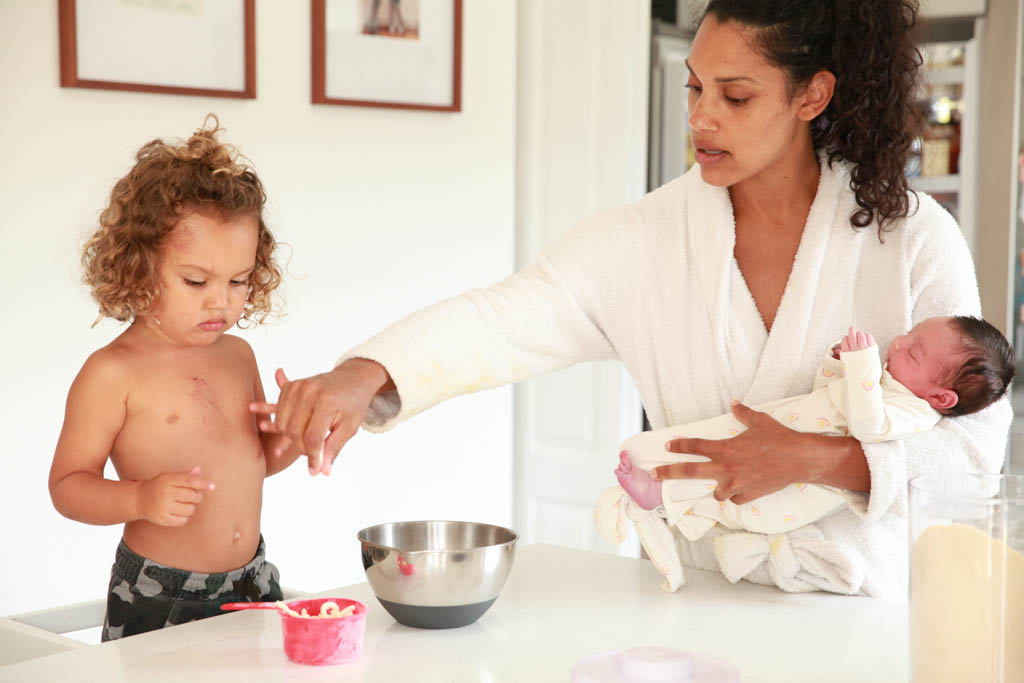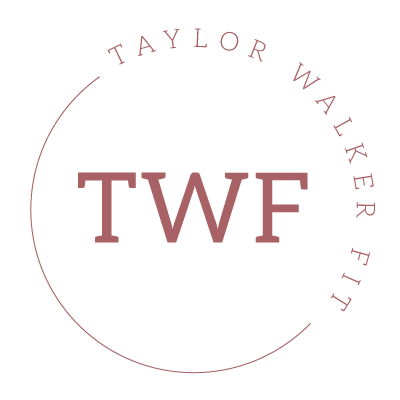
You did it mama! Welcome to the tribe.
You created and sustained life for 9 months. You went through the transformative experience of labor and delivery and your precious new bundle is here.
YOU ARE OFFICIALLY MAMA.
So today, I just want to check in with you… How are you?
No really, how are you?
The first few postpartum months, otherwise known as “the fourth trimester” are months that are hard to prepare for. Especially the first time around. Often times, we prep the nursery and all the things in the hospital bag, but rarely prepare for the weeks after baby. The first couple of weeks are often met with an adrenaline high. If you are lucky, help is on the way, meals are sent and you can get through the sleepless nights because you are euphoric.
But then the adrenaline wears off, hormones are beginning to settle, lack of sleep creeps in out of nowhere and social media makes you feel like “less” because of ALL the things. If it t leaves you wondering…who is here to take care of me? Yet, you feel paralyzed to ask for help because you feel you SHOULD be able to do it all. Know that you are not alone.

You have feelings. Often big feelings.
According to Beth Ruhmann, certified therapeutic recreation specialist and Community Health program coordinator at Baptist Health South Florida says: “Whether you had a C-section or natural childbirth or you’re breastfeeding, your hormones are up and down and all around, and your whole body is stressed.” During those early months mothers are in a constant state of fight or flight.
I know for me, when CJ would cry or make noise in his sleep it felt like nails on a chalkboard and would almost immediately make my anxiety skyrocket. During the consistent fight or flight of the early postpartum experience, stress hormones adrenaline and cortisol are constantly released into your system. This chronic stress on your system can have a profound affect on both you and your baby.
For example: For example, Ms. Ruhmann says, some babies have problems latching on during breastfeeding, which can be stressful for the mother. “The baby senses her mom’s stress and becomes stressed too, so now they’re both feeling each other’s anxiety and the baby doesn’t want to nurse.” If the baby is unable to breastfeed, she says, “mom may have problems producing milk, which in turn creates more stress for both mother and baby.”
Her advice is to take a deep breath when faced with triggers. To think of it as you would being on an airplane. When the oxygen masks come down – you put yours on first, then your child’s. Because you can’t help your child unless you help yourself first.”

Other tips to soothe yourself so you can soothe your baby are to:
Move Your Body
Get Moving
Eat Healthy
Seek Support
Practice Self-Care
And more on these in the full article.
Remember, the fourth trimester is often a MAJOR major adjustment filled with many emotions. Chay Shavrick, R.N., a women’s health navigator and pre and postpartum RN navigator for the Barbara C. Gutin Pre and Postpartum Program at Boca Regional Hospital Hospital’s Christine E. Lynn Women’s Health & Wellness Institute says: “Becoming a complete mother is a learning process.”
She also introduced me to PMAD. PMAD otherwise known as Postpartum Mood and Anxiety Disorder comes in many forms and occurs in women across all cultures, races, ages and income levels, according to Ms. Shavrick, yet the illness frequently goes unrecognized and untreated.
I was last week years old when I learned this term.
Ms. Shavrick suggests that friends, relatives and neighbors ask the new mom, “How are you really feeling now?” and keep a watchful eye for these common warning signs of PMAD:
- Constant sadness
- Crying easily
- Changes in eating patterns, not feeling hungry or not eating despite knowing it’s good for the developing baby
- Inability to focus and be present in life
Unfortunately, with CJ, I checked every single box! I just didn’t have anyone to ask the questions. I assumed what I had was baby blues, but when it lasted for months. I knew in my gut it was something bigger. When I went to the OB, I asked to be screened for Postpartum Depression. I was told that I was potentially borderline and was guided to join a few mommy groups. Thankfully, the more I built my tribe the better things got and the more sleep I got the better things got.
So, whether you are preparing yourself for labor and delivery, knees deep in the “Fourth Trimester” or you are a year plus postpartum, reading this and thinking…YES!!! That was exactly what I felt. Know you are not alone.
If you want to learn more about PMAD, watch THIS IG Live! And remember, even though the brunt is put on mama, men are susceptible to mental health symptoms during this time as well. With that said, anxiety and depression among men often goes unreported and untreated. So, Communication with your partner is key. For more on Men’s Mental Health, check out this podcast and share with the men in your life!


